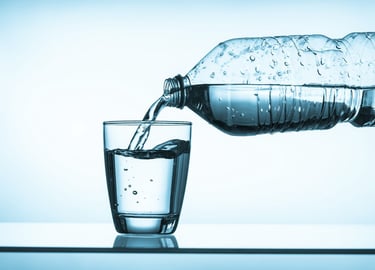Staying Hydrated Could Cut Risks of Stroke and Heart Disease, Research Suggests
When it comes to good health, most of us think of diet, exercise, and sleep as the top priorities. But there’s another simple habit that often gets overlooked—drinking enough water. Recent studies suggest that staying properly hydrated doesn’t just keep you refreshed; it could significantly reduce the risk of stroke and heart disease.


By: Bharat Daily Samachar Date: 24 Sep,2025
When it comes to good health, most of us think of diet, exercise, and sleep as the top priorities. But there’s another simple habit that often gets overlooked—drinking enough water. Recent studies suggest that staying properly hydrated doesn’t just keep you refreshed; it could significantly reduce the risk of stroke and heart disease.
This finding may sound surprising, but researchers have uncovered a direct link between hydration levels and cardiovascular health. Let’s dive deeper into how something as basic as water can play such a powerful role in protecting your heart and brain.
Why Hydration Matters More Than We Think
Our body is made up of nearly 60% water, and every organ—from the brain to the heart—depends on it to function efficiently. Water helps maintain blood circulation, keeps blood pressure in check, aids in flushing toxins, and regulates body temperature. When the body is dehydrated, the blood becomes thicker, the heart has to pump harder, and the chances of developing clots or blockages rise.
This is where stroke and heart disease come into play. Dehydration can increase strain on the cardiovascular system, making individuals more vulnerable to conditions like high blood pressure, stroke, and heart attacks.
What the Studies Reveal
Several scientific studies have highlighted the connection between hydration and cardiovascular health. One long-term study tracked thousands of participants over 20 years and found that adults with consistently low hydration levels were at a higher risk of developing heart disease and stroke compared to those who maintained healthy fluid intake.
Another study suggested that people with inadequate water consumption showed early signs of elevated sodium levels in their blood. High sodium levels are linked to stiffening of arteries, higher blood pressure, and greater cardiovascular risks.
These findings underline a simple but powerful truth: maintaining hydration isn’t just about avoiding thirst—it’s about long-term protection of your heart and brain.
How Much Water Do We Really Need?
Health experts recommend that the average adult drink around 8–10 glasses of water per day. However, this isn’t a one-size-fits-all rule. The ideal amount depends on factors like age, activity level, climate, and overall health.
Active individuals may need more water to replace fluids lost through sweat.
Older adults should be extra cautious, as the natural sense of thirst diminishes with age, making them more prone to dehydration.
Hot and humid climates require higher intake since the body loses water more quickly.
Listening to your body is key—dark urine, fatigue, and dry skin are all signals that you may not be drinking enough.
The Heart and Brain Connection
Hydration doesn’t just impact the heart. The brain, which relies heavily on proper blood flow, also suffers when the body lacks water. Dehydration can reduce oxygen supply to the brain, impair concentration, and even increase the risk of clot formation that could trigger a stroke.
On the flip side, consistent hydration helps maintain smooth circulation, ensuring both the heart and brain get the oxygen and nutrients they need.
More Than Just Water—Other Hydrating Options
While plain water is the best choice, hydration can also come from other sources:
Fruits and vegetables like cucumber, watermelon, and oranges are packed with water content.
Herbal teas and coconut water provide hydration with added minerals.
Soups and broths can also contribute to fluid intake.
However, sugary drinks and sodas should be avoided, as they may cause more harm than good by adding unnecessary calories and raising blood sugar levels.
Small Changes, Big Impact
Incorporating better hydration habits doesn’t require a drastic lifestyle overhaul. Here are a few simple strategies:
Keep a refillable water bottle with you at all times.
Set reminders on your phone to drink water throughout the day.
Begin and end your day with a glass of water.
Replace at least one sugary or caffeinated drink with water daily.
Over time, these small steps can make a significant difference for heart and brain health.
Global Health Relevance
Heart disease and stroke remain leading causes of death worldwide. In countries like India, where lifestyle-related diseases are on the rise, hydration could be a low-cost, accessible way to help reduce risks. Unlike expensive treatments or medications, drinking water is a universally available preventive tool that anyone can adopt.
Conclusion
The message is simple yet profound: hydration is not just about quenching thirst—it’s about safeguarding life. By drinking the right amount of water each day, you are not only keeping your body refreshed but also giving your heart and brain the support they need to stay healthy.
Next time you reach for a glass of water, remember—it might just be one of the simplest and most effective ways to protect yourself from stroke and heart disease.
